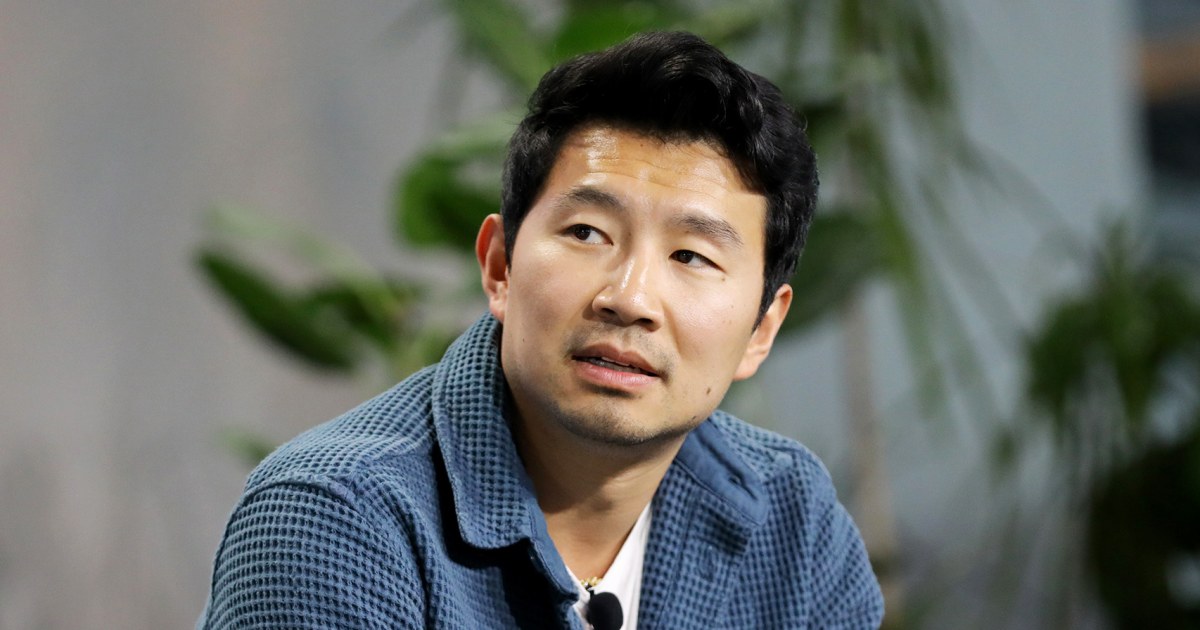Simu Liu Calls Out Cultural Appropriation in Bubble Tea Pitch on “Dragons’ Den”
In a recent episode of CBC’s “Dragons’ Den,” actor Simu Liu, known for his role in “Shang-Chi and the Legend of the Ten Rings,” made headlines for his outspoken criticism of a bubble tea brand pitched by Quebec entrepreneurs Sébastien Fiset and Jess Frenette. The duo sought a $1 million investment for an 18% stake in their company, Bobba, which claims to have transformed the traditional Taiwanese drink into a bottled, alcoholic version. However, their pitch sparked a significant backlash online, raising questions about cultural appropriation and the commercialization of traditional foods.
The Pitch and Its Controversy
Fiset and Frenette presented Bobba as a convenient, healthier alternative to traditional bubble tea, boasting a simple ingredient list of high-quality tea, fruit juice, and their “famous” popping boba. They claimed to have generated $4.6 million in revenue in their second year and projected growth to $7 million in the coming year. However, their assertion that they had “transformed” bubble tea did not sit well with Liu, who expressed concern over the implications of “disrupting” a drink that holds significant cultural value.
Liu’s skepticism was evident as he interrupted the entrepreneurs during their pitch, sarcastically questioning their characterization of bubble tea as a “trendy, sugary drink.” His comments highlighted the potential risks of cultural appropriation, particularly when a product deeply rooted in Asian culture is rebranded and marketed by individuals outside that culture. Liu emphasized that taking something “distinctly Asian” and claiming to make it better raises ethical concerns.
Online Backlash and Support for Liu
Clips from the episode quickly circulated on social media, garnering mixed reactions. Many viewers sided with Liu, applauding his efforts to address cultural appropriation, while others criticized the Bobba founders and the other Dragons for seemingly dismissing his concerns. Liu later took to TikTok to express his gratitude for the support he received but also condemned the harassment directed at Fiset and Frenette, urging his followers to focus on education rather than threats.
“I think we’re starting to lose the plot,” Liu stated in his video. “Let’s educate people. Let’s make the world a better place.” He acknowledged that while his fellow Dragons may have appeared dismissive on camera, they were open to discussing the issues raised during the pitch.
Bobba’s Response and Apology
In light of the backlash, Bobba’s founders issued a public apology, acknowledging the harm caused by their words and actions during the show. They recognized Liu’s points on cultural appropriation as valid and committed to further educating themselves on the impacts of their business practices. This response marked a significant moment of accountability, as the entrepreneurs expressed a willingness to learn and grow from the criticism.
The Cultural Significance of Bubble Tea
Bubble tea, or boba, originated in Taiwan in the 1980s and has since gained global popularity. It is characterized by its chewy tapioca pearls and a variety of flavors, often customized to individual preferences. The drink is not just a beverage; it represents a cultural phenomenon that has become a staple in many Asian communities. Liu’s concerns about Bobba’s branding and marketing strategies reflect a broader conversation about the importance of respecting cultural heritage in the food and beverage industry.
During the pitch, Liu pressed the founders on their respect for the drink’s origins, questioning the absence of any acknowledgment of Taiwan in their branding. Fiset claimed that their partnership with a Taiwanese manufacturer was a nod to the drink’s cultural roots, but Liu remained unconvinced, emphasizing the need for transparency and respect in business practices that draw from cultural traditions.
Conclusion: A Call for Respect and Understanding
The exchange on “Dragons’ Den” highlights the ongoing dialogue surrounding cultural appropriation and the commercialization of traditional foods. Liu’s passionate defense of bubble tea underscores the importance of recognizing and respecting cultural heritage in entrepreneurship. As the conversation continues, it serves as a reminder for businesses to approach cultural products with sensitivity and awareness, ensuring that they honor the traditions and communities from which these products originate.
In the end, while Fiset and Frenette secured their investment from another Dragon, the episode left viewers with much to ponder about the intersection of culture, commerce, and respect. Liu’s call for education and understanding resonates deeply, urging us all to engage in meaningful discussions about cultural appropriation and the responsibilities that come with it.
